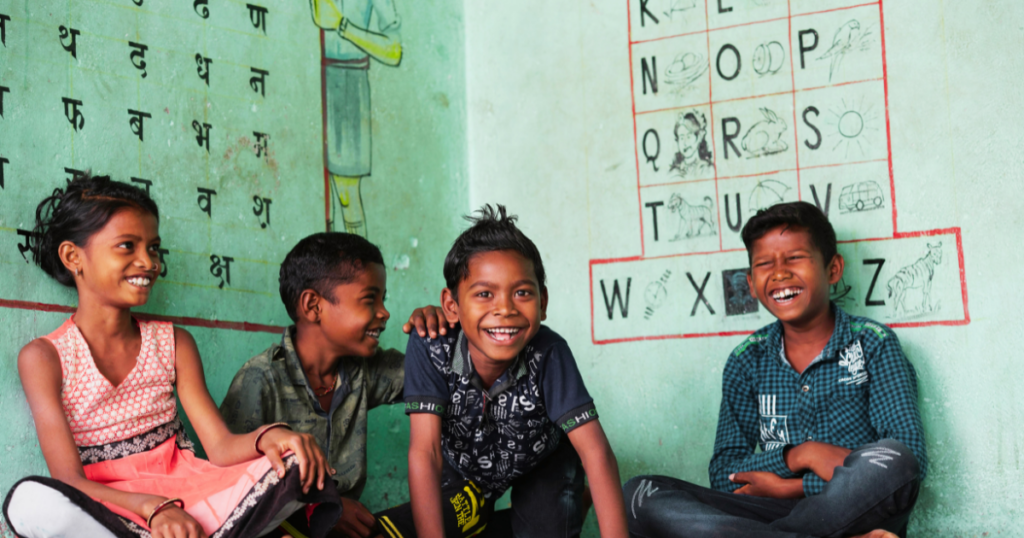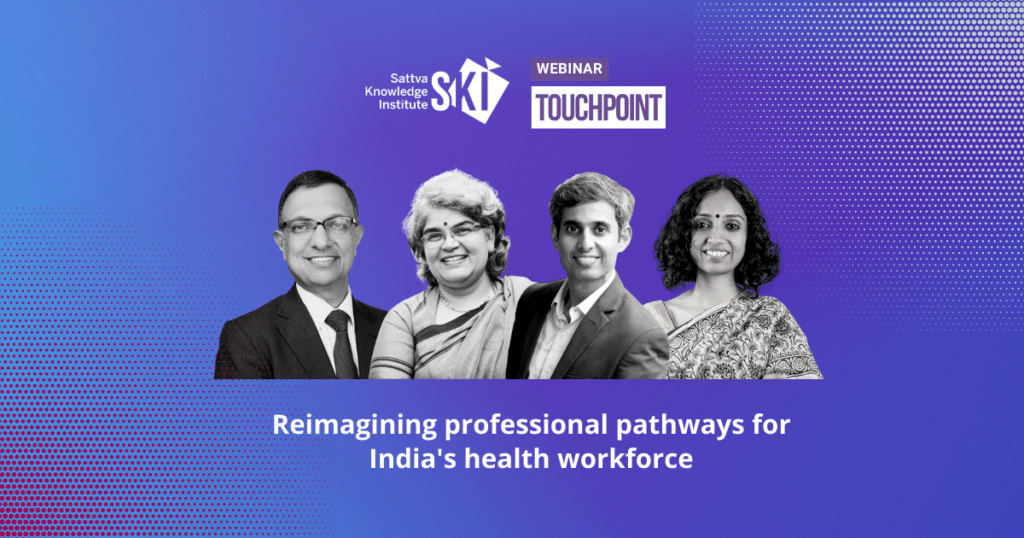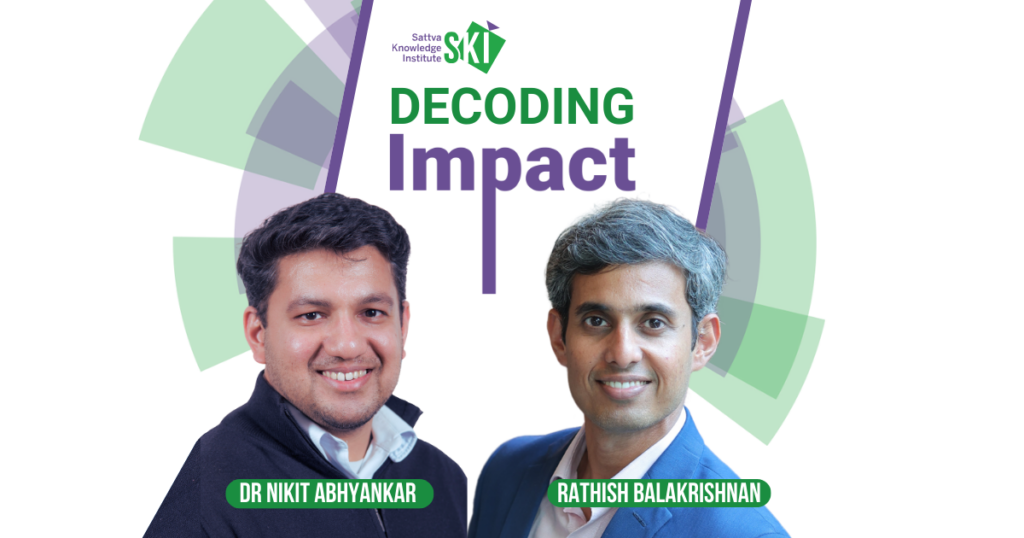We are thrilled to share that Sattva Knowledge Institute collaborated with Muskaan Dreams and the Global Digital Alliance as the knowledge partner for the Digital Inclusion Summit 2024.
Digital Inclusion Summit is a global movement that aims to close the digital gap for 120 million students in India, bringing key stakeholders and leaders from all across the world to facilitate collaborative actions through dialogues for digital inclusion, research & advocacy. It focuses on providing access to digital learning, internet connectivity, and professional development for teachers, in collaboration with the government.

With technological advancements and digital transformations, STEM education has emerged as a critical factor in shaping the future workforce. The National Science Foundation predicts that a staggering 80% of jobs in the coming decade will require STEM skills, with these roles growing twice as fast, and paying 65% more than non-STEM positions. Several policy tailwinds are encouraging skill development among the youth for this opportunity.
However, the domain is marked by a stark gender disparity, especially in India. 1 in every 2 girls between the ages of 15 to 19, does not belong in the STEM ecosystem. Although there has been an increasing trend of women taking up STEM in higher education, the trend at the school level is not very encouraging.
Data published by PARAKH highlights that 37% of school girls graduate from science subjects. However, in states like Andhra Pradesh and Tamil Nadu, the number of girls graduating from schools with science subjects is as high as 70%, and in states like West Bengal and Gujarat the number falls below 20%. There exists regional disparity in terms of girls opting for STEM subjects in higher secondary grades. The transition of skilled graduates to STEM-related careers is also a concern. Around 43% of STEM graduates are women, but a mere 14% of scientists, engineers, and technologists in research and development institutions and universities are female.
The reasons behind this gender disparity can be traced to institutional, personal, and social factors. A report by the Sattva Knowledge Institute highlights two critical challenges that impede the uptake of science discipline in higher secondary grades by girls. The first is low aspiration towards taking up science subjects in grade 11. Low aspiration is the result of the prevailing gender norms, ascribing gendered roles and careers for girls from primary grades itself, absence of local role models, and poor subject proficiency. Secondly, poor access to schools offering science subjects, unavailability of female teachers, lack of career guidance, and unavailability of financial assistance further dissuades girls from taking up STEM education.
To address these challenges, the Digital Inclusion Summit convened a panel discussion focusing on solutions to increase and sustain the aspiration for STEM education and careers among girls. Pradeep Sharma from Sattva moderated the panel discussion. The panelists were experts and practitioners in the STEM education space, such as Neha Patri from Quest Alliance, Pratima Harite from Lenovo, Tara Chand from OakNorth, and Anurag Pratap from Capgemini. They talked about the multifaceted challenges and proposed innovative solutions to cultivate a more inclusive STEM ecosystem.

The dialogue was structured around two key areas: boosting aspirations and enabling access.
“As we journey through the volatile terrain of the tech world, empowering girls, regardless of their socio-economic background with 21st-century skills becomes our moral compass. At the core of our initiative, we believe that by bridging the gap between access and adoption of technology for girls in STEM, we not only navigate the future readiness of our children empowering the next generation of women but pave the way towards a more inclusive and innovative tomorrow fulfilling the digital promise to every child.”
-Mr. Abhishek Dubey, Founder & CEO, Muskaan Dreams
Boosting Aspirations in Girls for STEM education
The panel emphasised the importance of sparking and sustaining interest in STEM education and careers among girls. To achieve this, exposure to female role models from the STEM ecosystem was deemed crucial. Additionally, the role of teachers in mentoring girls from early grades, industry professionals providing guidance in high school and beyond, scientific career assessments, and professional counseling were identified as effective strategies.
Recognising the influence of various stakeholders, including teachers, industry, community, and parents, the discussion highlighted the need for collaborative efforts – such as showcasing real-life examples of successful women in STEM – to encourage girls’ interest.
Enabling Access
The discussion on access focused on classroom inefficiencies and the pivotal role of teachers in facilitating STEM education and instilling a STEM mindset. The need to develop gender-sensitive approaches towards building STEM mindsets among students, and enhance teachers’ capacity to provide experiential education that fosters scientific curiosity was underscored. This approach aims to break down institutional barriers and empower girls to confidently engage with STEM subjects.
Financial barriers were identified as a significant impediment, particularly for low-income students in semi-urban and rural areas. The panel acknowledged the expensive nature of STEM courses compared to non-STEM alternatives, and discussed existing scholarship schemes for girls.
In a nutshell, the Digital Inclusion Summit shed light on the urgent need to bridge the gender gap in STEM education and careers. It highlighted practical solutions to inspire girls and provide them with the necessary resources and support. Additionally, by fostering collaboration among educators, industry professionals, communities, and parents, an inclusive environment can be created that propels more girls toward successful STEM futures.




